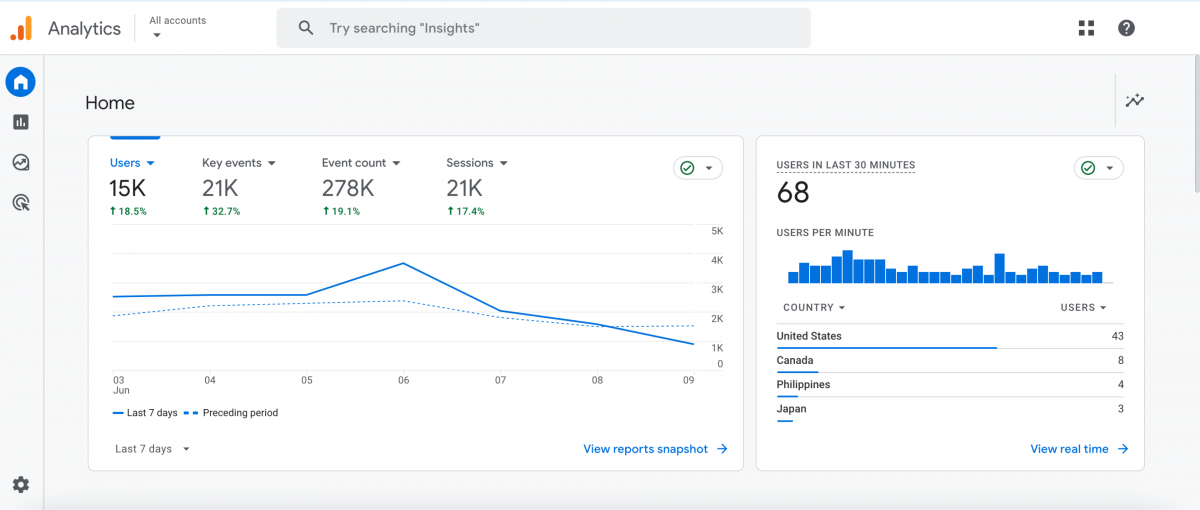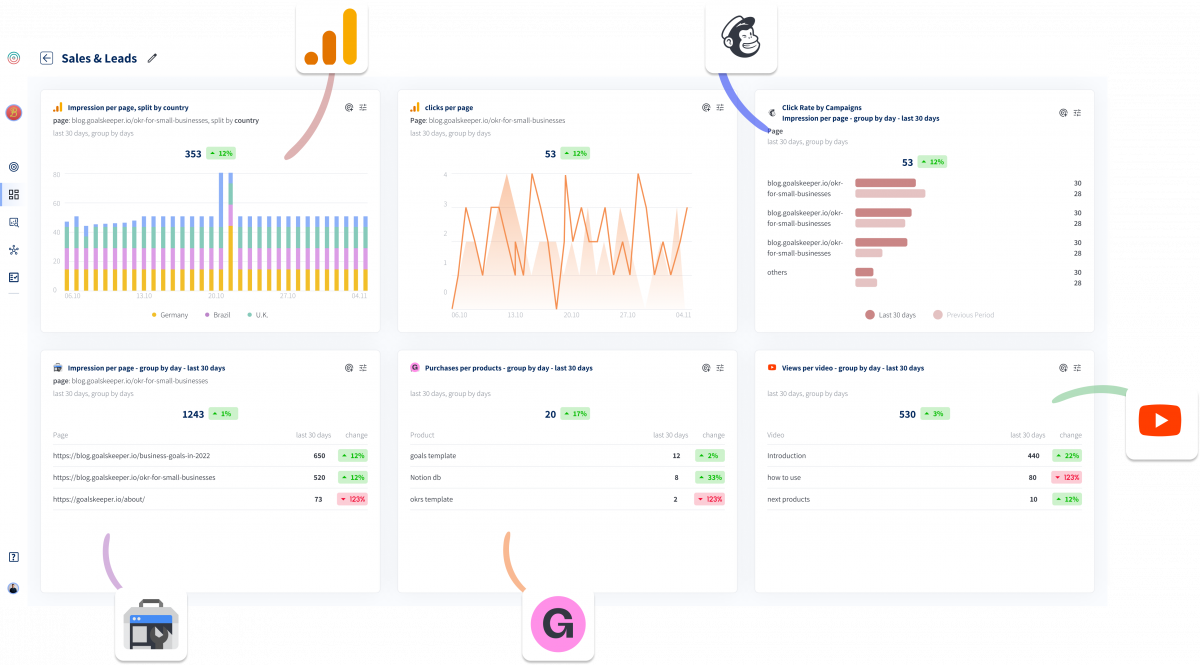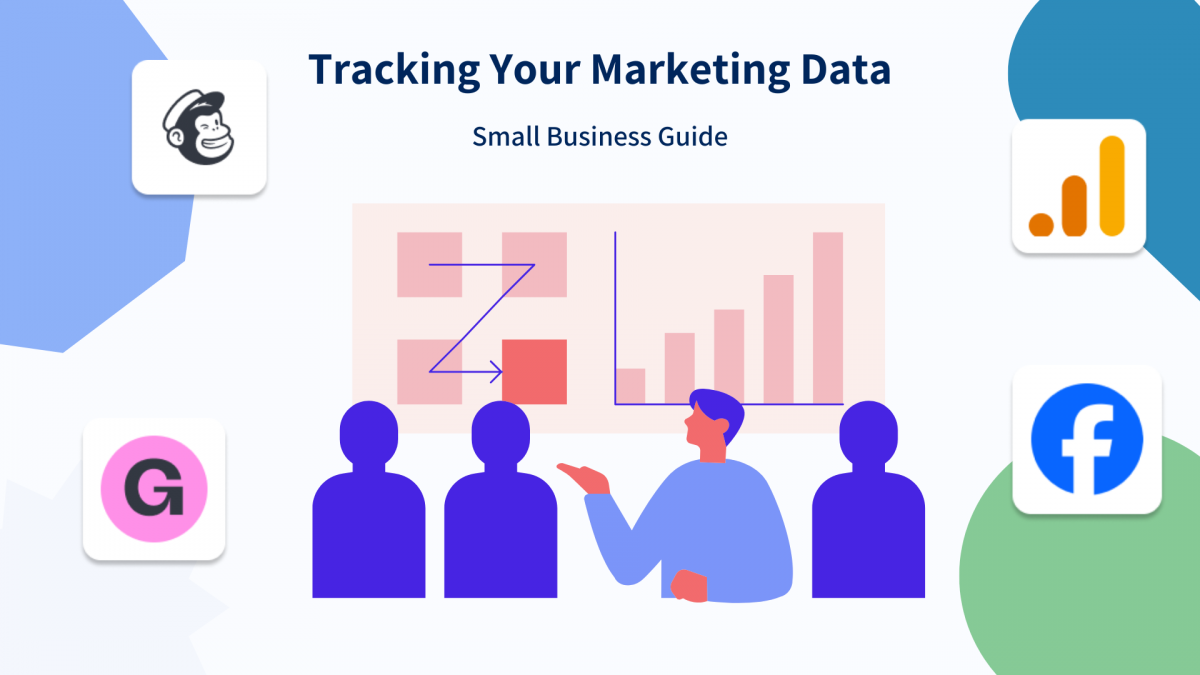Table of Contents
Understanding and Benefits of Digital Marketing Data
What is Digital Marketing Data?
Why Should I Care About Digital Marketing Analytics?
How Can Data-Driven Digital Marketing Improve My Small Business?
Getting Started and Overcoming Challenges
How Do I Get Started with Tracking My Digital Marketing Data?
Is Tracking Digital Marketing Data Difficult?
What Are the Common Mistakes to Avoid?
Best Practices and Digital Marketing Analytics Tools
What Are The Essential Tools To Track My Digital Marketing Data?
How Often Should I Check My Marketing Data?
Do you want to save time, resources, and effort while maximizing your digital marketing results? Do you want to be more marketing efficient? One way to be more efficient is to do only marketing activities that work the best.
Well, achieving good efficiency is easy to say but less trivial. You can be very creative and have good intuitions, but you are still guessing unless you measure and understand what works well. Other activities may work better.
In this post, we will focus on measuring the success of your digital marketing. By knowing what is working better, you can refine and adjust your efforts and improve the efficiency of your digital marketing.
Understanding and Benefits of Digital Marketing Data
What is Digital Marketing Data?

Digital marketing data is the information generated from online marketing efforts, such as website traffic, social media engagement, email open rates, and conversion rates.
The generated information can help answer all sorts of questions regarding your marketing efforts, for example:
- Simple questions - which social media posts make engagement
- Harder questions - which social media post topics likely drive more product page views
- Complex questions - which social media post topics result in more money in the business bank account?
Why Should I Care About Digital Marketing Analytics?
The key to understanding is the insights you can extract from the data. Again, does knowing the answers to the questions above make marketing more efficient?
One advantage of digital marketing is the ability to effortlessly measure many factors. If you already have or can access the data, it's worth looking at. You might find gems inside.
How Can Data-Driven Digital Marketing Improve My Small Business?
Data-driven marketing is not bulletproof for business marketing success, but it can help you feel more confident about where to invest your efforts. This approach allows you to test different activities and understand which performs better.
The insights from digital marketing are like layers of an onion. The external layers are easy to understand and get but could be more valuable. As you progress through the layers, you will get better insights that are also more difficult to extract from them.
The loop of extracting valuable insights, applying them, and testing new activities will improve the business. Think of this loop as your business's private navigation system to grow.
Getting Started and Overcoming Challenges
How Do I Get Started with Tracking My Digital Marketing Data?

Digital marketing channels can take many forms: a website, social media account, email list, blog, or podcast. Each channel has built-in analytics data, such as social media platforms, or you need to plug in a tool that helps you, such as Google Analytics.
If you run your website on a platform like Wix, you have built-in analytics within Wix. However, if the website is based on WordPress, you might need to plug in an external tool, like Google Analytics (which is free and simple to install). You can go to the related analytics page and check the metrics.
Is Tracking Digital Marketing Data Difficult?
As we just saw, gathering the data is easy, but understanding what to look at in the analytics can be tricky. The difficulty could be from checking how many visitors visit my website to 4 years of data science degree; the one thing that is changed is the questions you want to answer.
Try to think in plain English about what you want to know. For example, for a website, the following questions might be interesting to you:
- What are the visitors' demographics,
- how they reach your site
- Do they actually read the content or immediately bounce out
The next step is to go through the data and find the answers to your questions. For simple questions, you can probably find the answers by yourself. The hard questions might require merging data from multiple channels, and the complex ones require a deep understanding of data science. Note that the level of simplicity does not sound to you, but it is hard to find the answers inside the data.
What Are the Common Mistakes to Avoid?
The insights you can extract from the data rely on this funny thing called statistics. Let me explain. For example, you wrote a social media post, and the question you have is from which region most of the clicks came, so you can adjust the content better to that region.
During time, the most valuable regions can be changed due to local holidays, timezone differences, or just the time it took to be popular in different regions. As you understand, you can come up with wrong conclusions depending on the time you checked the data. Check the analytics data Consistently, not sporadically.
Let's continue with the post example. Now we have multiple posts, and our question is which post drives the most clicks from a specific region; we want to add additional dimension to the data. In this specific case we should add UTM parameters to the post to add the data which website visit came from which post.
Think in advance about which question you want to answer from the data, and make sure you have it. In the worst case, you will add the data, but the previous data will be kind of "lost" for that specific question you had.
Best Practices and Digital Marketing Analytics Tools

What Are The Essential Tools To Track My Digital Marketing Data?
To effectively track your digital marketing data, you need to use a variety of tools that cover different aspects of your marketing efforts. Here are some essential tools to consider:
- Google Analytics:
- Provides comprehensive insights into your website traffic and user behavior.
- Tracks metrics like page views, bounce rates, and conversion rates.
- Google Search Console:
- Helps monitor and troubleshoot your website’s presence in Google search results.
- Provides data on search queries, clicks, and impressions.
- Social Media Analytics:
- Tools like Facebook Insights, Twitter Analytics, and LinkedIn Analytics offer detailed data on social media performance.
- Tracks engagement metrics like likes, shares, comments, and follower growth.
- Email Marketing Software:
- Platforms like Mailchimp, Constant Contact, and SendinBlue provide analytics on email campaigns.
- Tracks open rates, click-through rates, and conversion rates.
- Customer Relationship Management (CRM) Systems:
- Tools like HubSpot, Salesforce, and Zoho CRM track customer interactions and sales performance.
- Provides insights into customer behavior and sales trends.
How Often Should I Check My Marketing Data?
The frequency of checking your marketing data depends on your specific goals and the nature of your business. However, here are some general guidelines:
- Daily:
- Check critical metrics like website traffic, social media engagement, and email open rates to stay on top of any sudden changes or issues.
- Weekly:
- Review overall performance metrics to identify trends and make minor adjustments to your strategies.
- Monthly:
- Conduct a comprehensive analysis of all marketing channels to evaluate the effectiveness of your campaigns and make informed decisions for future strategies.
- Quarterly:
- Perform a deep dive into your data to assess long-term trends, measure progress against goals, and plan major strategic adjustments.
What Tools Can Help Me Track My Digital Marketing Data?
In addition to the essential tools mentioned earlier, here are some other valuable tools that can help you track and analyze your digital marketing data more effectively:
- goalskeeper.io:
- Integrates multiple data sources into a single platform.
- Provides cross-channel dashboards, goal-setting features, and easy-to-understand insights.
- Google Data Studio:
- Allows you to create custom reports and dashboards.
- Integrates with various data sources, including Google Analytics and Google Ads.
- SEMrush:
- Offers comprehensive SEO and competitive analysis.
- Tracks keyword rankings, backlinks, and organic search performance.
- Hotjar:
- Provides heatmaps and session recordings to understand user behavior on your website.
- Tracks user interactions, clicks, and scroll patterns.
- Ahrefs:
- An SEO tool that provides insights into organic search performance.
- Tracks keyword rankings, backlinks, and content performance.
Using these tools and following best practices, you can effectively track and analyze your digital marketing data, leading to more informed decisions and better marketing results.
Conclusion
In conclusion, understanding and leveraging digital marketing data is essential for driving the success of your small business. By moving from guessing to knowing what works in your marketing efforts, you can make more informed decisions, optimize your strategies, and achieve better results.
Here are the key takeaways from this post:
- Understanding Digital Marketing Data:
- Digital marketing data provides valuable insights into your marketing efforts, helping you understand what works and what doesn’t.
- Getting Started and Overcoming Challenges:
- Start by identifying key metrics and using the right tools to gather and analyze data.
- Approach data analysis with clear questions in mind to make the process more manageable.
- Best Practices and Essential Tools:
- Use a combination of essential tools like Google Analytics, social media analytics, email marketing software, and CRM systems.
- Check your data regularly to stay on top of trends and make timely adjustments.
By following these best practices and using the recommended tools, you can transform your digital marketing efforts from guesswork to a data-driven strategy. This approach will not only improve your marketing efficiency but also help you achieve your business goals more effectively.
Remember, the journey to effective digital marketing is ongoing. Continuously test, measure, and refine your strategies based on the data you collect. This iterative process will ensure that your marketing efforts remain aligned with your business objectives and drive sustainable growth.
Start leveraging the power of digital marketing data today and see the difference it can make in your business success.
Read to next step?
Achieve Digital Marketing Success
Effortless Digital Marketing Analytics with goalskeeper.io
Start Free TrialFound in:
Digital Marketing





